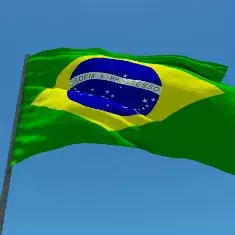After initially resisting requests from Brazilian authorities to censor certain Twitter users, Elon Musk and Twitter have now decided to comply with the demands. This decision came after facing growing fines and the possibility of a ban on the app in the region.
Earlier this month, Twitter announced that it had been issued a court order by Brazilian authorities to block certain popular accounts in Brazil. While Twitter claimed it was not given a sufficient reason for this action, it ultimately decided to comply with the request in order to align with local laws.
Following the announcement, Elon Musk was challenged by his followers on the app to defy the ruling in the name of free speech. Musk ordered all blocks to be removed, putting himself on a collision course with Brazilian officials and risking the platform’s access to the region.
Compliance with Requests
As the fines continued to mount, reaching up to $200,000, and with the threat of legal action against local employees, Twitter ultimately agreed to comply with the requests. Lawyers representing Elon Musk’s Twitter confirmed that the platform would adhere to all rulings issued by the Brazilian Supreme Court or the top electoral court.
Some have speculated that this compliance may be temporary, aimed at ensuring the safety of Twitter’s local employees. It is possible that Twitter could resume its opposition to the ruling in the near future. However, for now, Twitter has chosen to follow the requirements of local authorities, despite its previous stance against such actions.
Elon Musk has been vocal about enabling free speech on Twitter, with the caveat that the platform will always operate within the confines of local laws. In this case, Musk argued that the Brazilian Government’s requests exceeded what was mandated by local law, prompting Twitter to take a stand.
While Twitter’s battle with Brazilian authorities has been put on hold for the time being, the situation remains fluid. Elon Musk has shown willingness to oppose rulings in the past and could potentially do so again. It is unclear why he has deemed this particular request as a step too far, especially considering Twitter’s compliance with similar demands from other governments.
Overall, the decision to comply with Brazilian authorities marks a shift in Twitter’s approach, highlighting the complex balance between free speech advocacy and adherence to local regulations. The outcome of this situation will be closely monitored as Twitter evaluates its next steps.


Leave a Reply